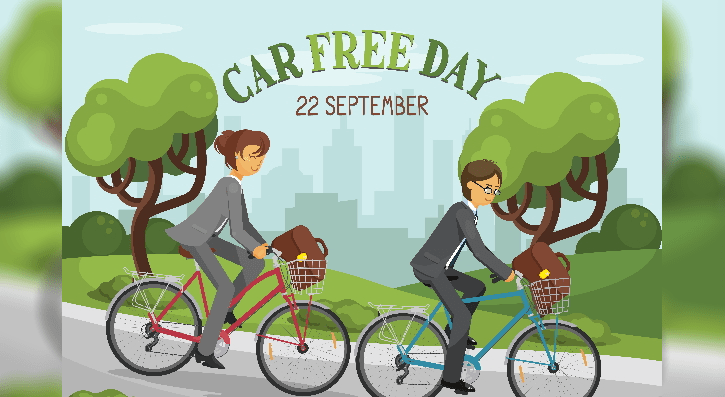World Car Free Day
0 min read
21 September 2020

Imagine a city full of green spaces, where you can hear the birds sing and fill your lungs with clean air while you cycle to work safely in an extensive network of designated bike lanes.
World Car-Free day is an annual event, happening this year on the 22nd of September, designed to showcase just how our cities could look, feel and sound without cars… 365 days a year, says The World Carfree Network.
On World Car-Free Day cities across the world encourage motorists to give up their cars for a day with the aim of highlighting the benefits of going car-free, revitalising towns and cities and creating a sustainable future.
Air Pollution Caused by Transport
Car-free days are a fantastic opportunity for cities to realize how much pollution affects our lives. Vehicle emissions are one of the main sources of outdoor air pollution, particularly in cities. In 2016, ambient air pollution alone caused some 4.2 million deaths, according to the World Health Organization. Transport is also the fastest growing source of fossil-fuel CO2 emissions, the largest contributor to climate change.
Benefits of Going Car-Free
If the above still hasn’t convinced you to give up your car for the day, check out the benefits going car-free could bring for you and your city below!
For your city:
- Less air and noise pollution. When Paris’ city centre went car-free in 2015, levels of nitrogen dioxide dropped by up to 40% in parts of the city, and sound levels dropped by half in the city centre.
- More space for living — not traffic. Freeing up roads from the dominance of traffic makes more room for parks, squares, and community life. Green spaces can also welcome back some of our lost urban biodiversity.
- Better infrastructure for active transport: Walking, bicycling, skateboarding, rollerblading, and other forms of active transport are good for our bodies and the planet. Less space for cars means more space for bike lanes and safe pedestrian infrastructure on our streets, which is sorely needed in places such as Belfast.
- More money left for better, renewable energy-powered public transport and more sustainable, electric car sharing schemes. Building and maintaining roads for cars costs a lot of money! Shifting that investment over to sustainable transport means we can have the same convenient mobility without the carbon footprint.
- Getting rid of roads and reducing pollution-emitting cars will help us cool the planet. Parks instead of heat-absorbing roads and concrete would help reduce urban heat islands, and generally make our cities cooler places to live.
For you:
- Better health
- Less wasted time
- Increased time outside
- Money savings
Page Tags
SERCLatest News
Keep up with the latest from SERC



